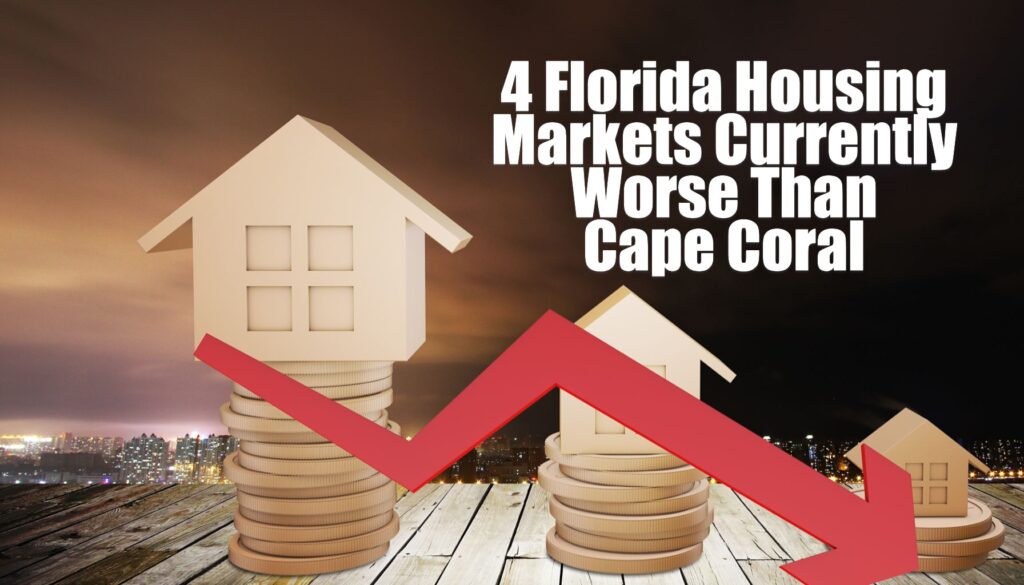Florida Housing Market: Insights and Trends Amidst Change
The bright sunshine of Florida hides a nuanced story in its housing market. As we move into May 2025, hints of a slowdown, marked by price adjustments and shifting dynamics, are emerging. Understanding these elements is critical for anyone interested in Florida’s real estate landscape.
Florida Housing Market Overview: Shifting Dynamics
Florida’s housing market is dynamic, serving as a hub for relocations, investments, and retirements. While the Sunshine State typically thrives, even it is not insulated from national trends such as rising interest rates and a general cooldown following years of rampant growth. According to Tim Weisheyer, the 2025 Florida Realtors President, “Florida’s housing market is finding its balance, and that’s good for buyers and sellers alike."
Key Market Data for May 2025
- Closed Sales: Down 5.7% from last year, totaling 24,756 units.
- Median Sale Price: $415,000, a 2.7% drop compared to a year ago.
Dr. Brad O’Connor, Chief Economist for Florida Realtors, emphasizes that while we are witnessing a third consecutive month of year-over-year price decreases, current prices remain 54% higher than in 2020. This is not a collapse but an essential recalibration towards a more stable market.
Cape Coral: A Benchmark for Comparison
Focusing on the Cape Coral-Fort Myers MSA, we can see how it stands up against the broader market trends:
Cape Coral Market Snapshot (May 2025)
- Closed Sales: 1,443, down 1.6% year-over-year.
- Median Sale Price: $375,000, reflecting a 9.6% decrease year-over-year.
Despite the notable price drop, the decrease suggests a correction rather than a crisis. The surge in prices post-pandemic and challenges from Hurricane Ian have created intricacies that buyers and sellers must navigate accordingly.
Areas in Florida Facing Greater Housing Market Challenges
Several metropolitan areas in the Sunshine State have indicated more acute slowdowns compared to Cape Coral. Here are four noteworthy markets exhibiting more significant price and sales setbacks:
1. Naples-Immokalee-Marco Island MSA
- Closed Sales: Down 15.3% year-over-year.
- Median Sale Price: $767,800, a startling 19.2% decline year-over-year.
High-end property segments dominate Naples, making it sensitive to economic shifts. As interest rates rise, many luxury buyers adopt a wait-and-see approach, affecting market stability.
2. Punta Gorda MSA
- Closed Sales: Up 1.7% year-over-year.
- Median Sale Price: $325,000, a striking 14.5% drop year-over-year.
Here, even with increased sales, the median price drop signals nuanced market dynamics influenced by Hurricane Ian’s aftermath.
3. Sebastian-Vero Beach MSA
- Closed Sales: Down 6.8% year-over-year.
- Median Sale Price: $386,190, a 10.2% decrease year-over-year.
Coastal properties often attract discretionary buyers, who might feel additional pressure from rising insurance costs.
4. North Port-Sarasota-Bradenton MSA
- Closed Sales: Down 4.7% year-over-year.
- Median Sale Price: $475,000, a 9.9% decrease year-over-year.
The combination of steep price declines and even greater sales drops represents a more challenging atmosphere for sellers in this rapidly growing market.
Comparative Quick Reference
| MSA | Median Sale Price | Yearly Price Change | Closed Sales | Yearly Sales Change |
|---|---|---|---|---|
| Cape Coral-Fort Myers MSA | $375,000 | -9.6% | 1,443 | -1.6% |
| Naples-Immokalee-Marco Island MSA | $767,800 | -19.2% | 431 | -15.3% |
| Punta Gorda MSA | $325,000 | -14.5% | 536 | +1.7% |
| Sebastian-Vero Beach MSA | $386,190 | -10.2% | 273 | -6.8% |
| North Port-Sarasota-Bradenton MSA | $475,000 | -9.9% | 1,574 | -4.7% |
Market Influences: Understanding the Declines
Natural and economic factors contribute to these significant shifts.
- Luxury Market Sensitivity: High-end markets often react first to economic changes, making them susceptible when interest rates rise.
- Post-Hurricane Recovery: Areas heavily affected by natural disasters experience differing recovery patterns. Complexities in insurance and labor can lead to unique market conditions.
- Prior Price Appreciation: Regions that witnessed considerable price surges during the previous boom often face more substantial corrections.
- Inventory Levels: A higher supply of available homes amidst reduced demand can lead to downward price pressures.
In addition, the condo and townhouse markets are also experiencing considerable price declines, with average median prices down 6.1% year-over-year — a longer-standing trend that highlights different property types’ responses to market pressures.
A Softening Market: Opportunities Ahead
While price declines can cause concern for current homeowners, they present an opportunity for potential buyers who were previously priced out. With more inventory available, buyers can enjoy greater choice and reduced competition.
Key Takeaway
Florida’s real estate market is navigating a rebalancing act. Understanding localized trends becomes critical for making informed decisions, whether buying or selling. The need for expert local advice is paramount in this evolving landscape.
The Future of Florida’s Housing Market
The essence of Florida’s housing market remains resilient. While we observe more significant price and sales adjustments in areas like Naples, Punta Gorda, Sebastian-Vero Beach, and North Port-Sarasota-Bradenton, these corrections signify a return to a more sustainable pace, rather than a dramatic downturn.
Invest in Florida Real Estate
For those looking to capitalize on Florida’s real estate opportunities, explore high-quality, ready-to-rent properties that are primed to deliver consistent returns.
Contact Norada today to expand your real estate portfolio with confidence at (800) 611-3060!
By analyzing these trends and making informed decisions, you can successfully navigate the complexities of Florida’s housing landscape.


